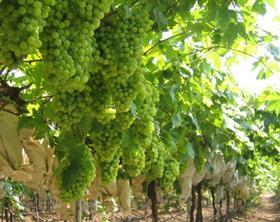
Authorities have denied a crucial relaxation on residue laws which could see next year's Indian grape season thrown into chaos once more, the Fresh Produce Journal (FPJ) has reported.
According to the publication, the EU has confirmed that it will not be changing the maximum residue levels (MRL) on the use of the pesticide chlormequat and will be using 'targeted surveillance measures' to crack down on its use.
The EU Standing Committee on the Food Chain and Animal Health met earlier this month to discuss an application from the UK on behalf of the Indian government for a temporary MRL of 0.2mg/kg to account for follow-on residues from the use of chlormequat on Indian grapes in 2009, but ruled in favour of the existing MRL of 0.05mg/kg.
It is estimated that the chlormequat chloride issue has cost the Indian grape industry around Rs2.5bn (€39.4m), FPJ revealed.
The EU revised its imports protocols in December 2009, and shipments of Indian grapes were stopped at European ports after traces of chlormequat, a grape-sizing agent not prohibited in India, were found in them.
The EU Standing Committee noted that a sizeable proportion of last season's imports were within the existing statutory MRL.
Russel Wedgbury of the Chemials Regulation Directorate said: 'I understand that this is disappointing news, but I am afraid there is now no prospect of any amendment to the MRL being agreed ahead of the forthcoming season's importation.'



